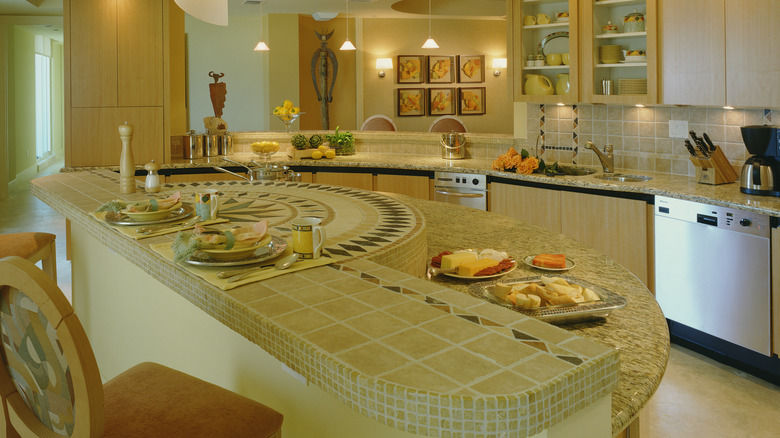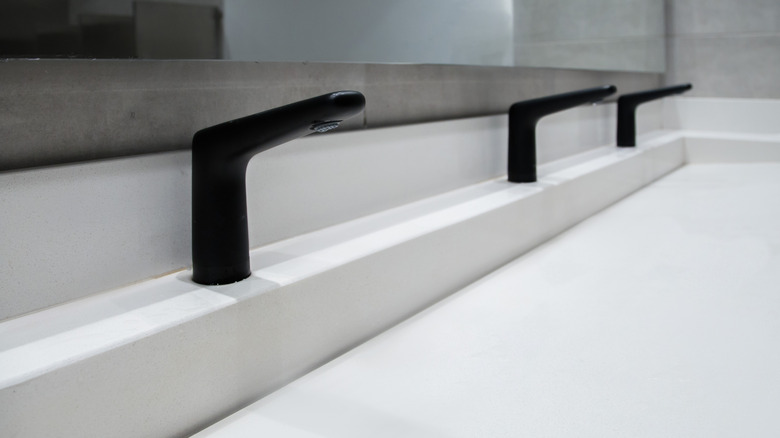The Countertop Material That's Expected To Make A Comeback
Nothing dates a kitchen quite like its countertops. From the ceramic tile popular in the '80s to the quartz boom of the early 2000s and 2010s, these trends tend to come and go. In some cases, though, they come back. Lately, that seems to be happening with Corian. Corian was a popular staple in the '90s, and like any trend that gets overused, it can feel stuck in that specific time period. But '90s style is back, and designers and homeowners are once again embracing the many benefits that made it popular to begin with.
Corian is an artificial product created by Dupont that combines minerals and resins. The result is a solid surface that can mimic the look of natural stone, but unlike marble and granite, it's not porous — a major advantage of installing a Corian kitchen countertop or bathroom vanity. Its non-porous nature prevents bacteria and stains from penetrating the surface, and its durability makes it heat-resistant. Though it can scratch, it can be easily repaired. Corian also creates a seamless appearance, as pieces can be melded together without grout lines or visible joints. This allows countertops to flow uninterrupted into a backsplash or sink, which has the added benefit of making them easy to clean.
"This is why I love to use it as an interior designer," says Bee of Diary of a Home Designer in a TikTok post. "It allows us to have seamless installation. No grout lines or joints; it's non-porous, so it resists stains and bacteria growth. It's just really good for busy households. And it's repairable and long-lasting." Because of these benefits, she urges her clients to consider Corian rather than automatically choosing stone for their bathroom vanities.
Budget-friendly Corian comes in many colors and patterns
In addition to its durability, designers like Corian for its versatility. Artem Kropovinsky, founder of Arsight Studio, says Corian works well with a range of styles because it comes in an almost endless mix of colors, patterns, and finishes. It can be made to look like natural stone, which may work well in more traditional spaces or be tailored to a modern look with solid colors and glossy finishes. It can also be molded into different shapes for those looking to add some visual interest.
Corian also tends to cost less than quartz, which is another engineered material and a once-favored kitchen countertop that's become outdated. According to Angi, the average cost to install Corian countertops is $3,950 compared to $4,500 for quartz. In a TikTok post, DIYer hammsmom_shayla says that when choosing a countertop for her kitchen project, Corian was much less expensive than quartz. At Home Depot, it cost $60 a square foot compared with $115 for the quartz.
However, cost was only part of the reason she chose Corian. Its clean look and durability were also factors. "If you're thinking about buying new countertops, I highly recommend purchasing Corian," she says. "Compared to granite, marble, or quartz, Corian is one of the most durable countertops and requires the least amount of maintenance." She also appreciates that "it's a simple and clean look and isn't busy as sometimes granite and marble can be." Given that, it's no surprise this once-popular countertop trend is poised to make a comeback.

